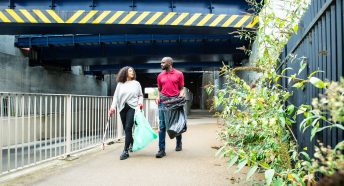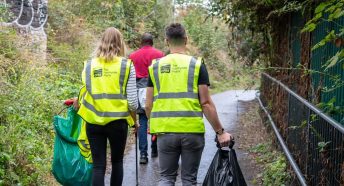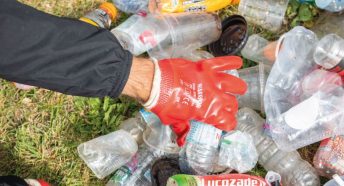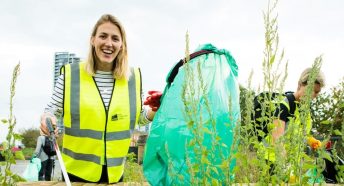Plastic bag use has dropped dramatically. We look at the next steps
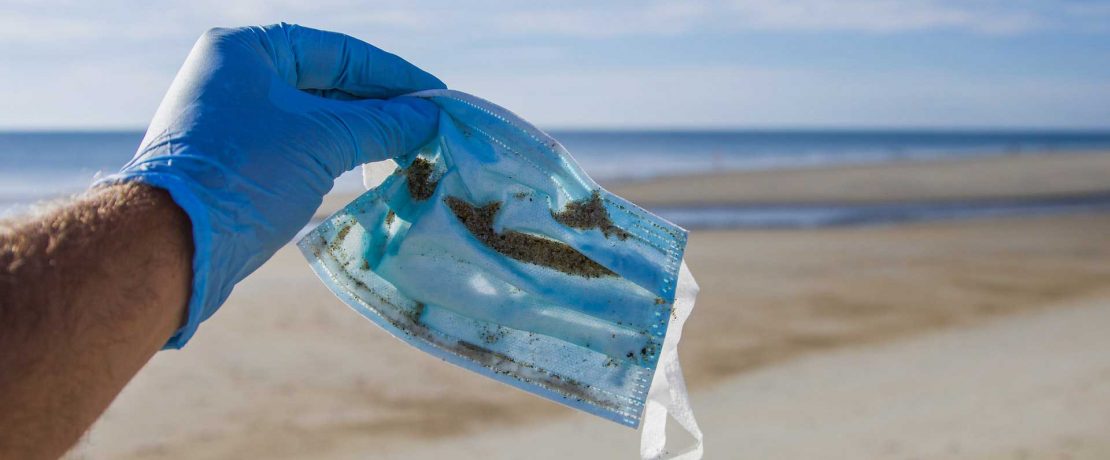
The government is celebrating the 59% reduction in customers buying plastic bags since 2018-19. We’re calling for dramatic progress in cutting plastic use and pollution.
New data from the government shows that on average, we’re buying just four plastic bags a year from the main supermarkets, compared with 10 last year and 140 in 2014. The 5p charge for bags, which was brought in following campaigns from CPRE and others, has seen a drop in plastic bag sales of 95% since it was introduced in 2015.
We are CPRE are proud to have been part of this seismic change in the way we use plastic bags, but we’re concerned about what happens next around cutting plastic waste. Far from resting on our laurels, we think it’s time to do more.
‘We can’t stop there’
We can all celebrate the change around the way we use plastic bags. It shows us that behaviour change is possible. Our campaigns and policy director, Tom Fyans, explained that ‘… as one of the organisations that long campaigned for a carrier bag charge to be introduced, we’re of course pleased to see it having the desired effect.’
But we at CPRE are concerned that this success could distract from the tremendous task still ahead of us in reducing plastic waste and all litter – not least now that there are new disposable items recently added to our single-use habit. Tom said:
‘We can’t stop here. Our throwaway culture persists, with the litter newcomers of gloves and face masks adding to the waste that blights the countryside and harms wildlife.’
And we’re warning against complacency and self-congratulation from the government. The Environment Secretary George Eustice, recognising the significant drop in plastic bag uptake, said:
‘We have all seen first hand the devastating impact that plastic bags have on the environment, littering our beautiful countryside and threatening the world’s marine life. I am committed to driving this progress further and I hope this continues to inspire similar action across the globe.’
We want to see this progress happen rapidly – and soon.
What needs to happen next
The government is praising the country’s ‘world-leading’ strategies and plans around pollution. But they’re celebrating too soon. Much, much more needs to be done, as Tom explains.
‘The government has little reason to pat itself on the back for tackling plastic pollution. We continue to lag behind many other countries in terms of tackling both plastic pollution and waste, which is no surprise when you consider that simple plans to extend the carrier bag charge have been put on hold for almost two years.
‘If we’re to have any chance of living up to the government’s ambition of being world leaders in this field, we need charges on all single-use, throwaway items – from takeaway cups to wooden forks. Incentivising reuse systems and finally committing to an all-in Deposit Return Scheme for drinks containers are the only ways the government can achieve a litter-free countryside and win the fight against plastic pollution.’
CPRE has worked for a reduction in plastic waste for many years. We’ll keep calling on government for dramatic changes to ensure a litter-free future for all of us. Want to do your bit? Read more about our campaigns on zero waste and become a member to help us keep putting pressure on those in power to take decisive action on plastics.



